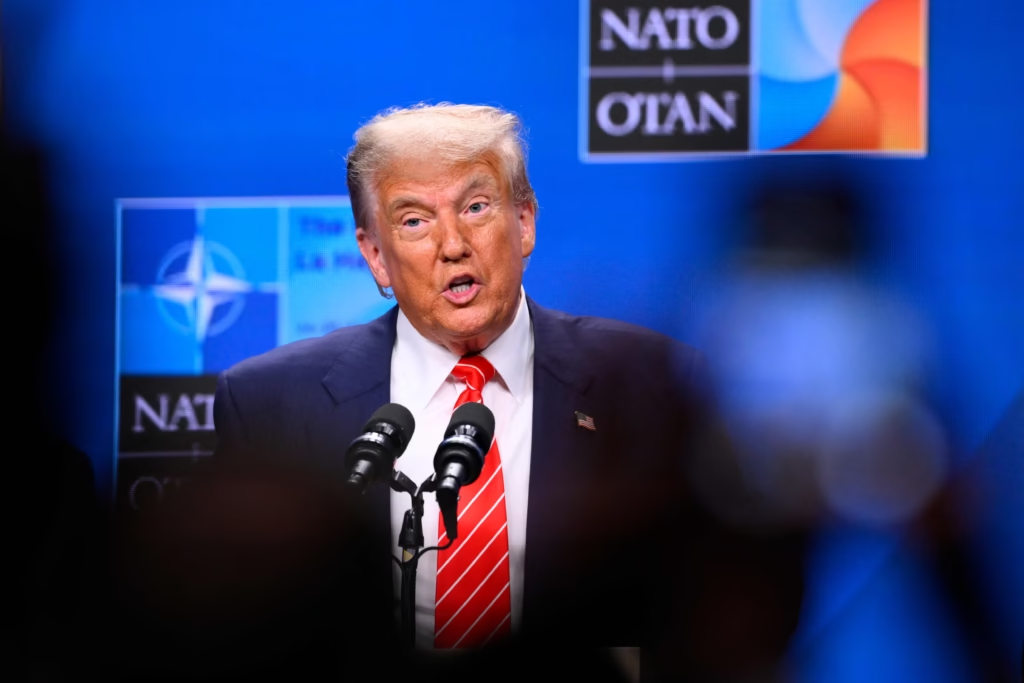April has been a month filled with impactful headlines from around the globe. From shifting political landscapes to groundbreaking scientific updates, the news has been anything but quiet. Key events have shaped international relations, public opinion, and national priorities.
This roundup of April headlines highlights the most talked-about developments. From Trump’s legal updates to India-Pakistan tensions and federal funding news, these stories demand attention. Let’s dive into the top events that defined this month.
Read More: Kyiv Attack: Rising Death Toll in Russia’s Deadliest Strike
Trump’s Legal Saga Deepens Amid Campaign Efforts
April 25 brought renewed attention to former President Donald Trump’s ongoing legal battles. As he continues his 2024 campaign push, legal hurdles threaten to overshadow his political messaging. His legal team remains active across several jurisdictions.
Recent proceedings have intensified scrutiny on Trump’s previous business dealings and post-presidency actions. While he maintains his innocence, the spotlight only grows stronger. Courtroom drama is quickly becoming a central theme of his campaign narrative.
Despite mounting pressure, Trump’s base continues to show unwavering support. His legal team has taken an aggressive stance, portraying the charges as politically motivated. This framing appears to be resonating with his core voters.
The outcomes of these legal challenges could set major precedents for future presidents. They also reflect deeper tensions within America’s legal and political systems. As April ends, Trump remains both a defendant and a dominant political force.
India-Pakistan Relations See Renewed Strain
Relations between India and Pakistan took a tense turn in late April. Cross-border rhetoric intensified following disputed incidents in the Kashmir region. Both governments have responded with caution yet firm posturing.
Diplomatic channels have remained quiet, signaling a pause in any potential backchannel talks. International observers are concerned about the risk of miscalculation. Neither side has formally requested mediation, but the situation remains volatile.
Media coverage in both nations has reflected deep nationalistic tones. Public sentiment is divided, with calls for restraint competing against demands for action. These developments come amid regional shifts, including Afghanistan’s evolving dynamics.
The global community watches with caution as both nations recalibrate their positions. April 25 served as a flashpoint for deeper geopolitical undercurrents. Continued tension could impact trade, security cooperation, and broader South Asian stability.
DOJ Grant Programs Under National Spotlight
The U.S. Department of Justice made headlines by unveiling key grant allocations. These funds are aimed at strengthening public safety and addressing systemic challenges. Recipients range from local law enforcement to educational initiatives.
Critics have questioned the transparency of the selection process. Some communities argue they were left out of funding due to political bias. DOJ officials insist that decisions were data-driven and merit-based.
Civil rights advocates welcomed the focus on community-based safety measures. There is a growing push for programs that address mental health and youth engagement. This reflects a broader shift in how safety is defined nationwide.
As April closes, the impact of these grants is being closely evaluated. The grants may redefine local enforcement strategies for years to come. Their rollout sets the tone for the federal government’s approach to justice reform.
Survey Reveals Shifting Identity Among Jewish Americans
A major survey released this week shed light on American Jewish identity trends. Results show significant generational differences in religious practice and political views. These insights are shaping community discussions and national discourse.
Younger Jewish Americans are less likely to identify with formal denominations. Many emphasize cultural heritage over religious observance. This shift is prompting synagogues and institutions to reconsider their outreach models.
The survey also revealed widening gaps in perspectives on Israel. Older respondents tend to be more supportive of Israeli policies. Younger voices express concern over human rights issues and call for a more balanced U.S. approach.
Jewish leaders are now rethinking how to maintain unity amid diversity. April’s findings offer both challenges and opportunities for communal growth. As demographics evolve, so too does the narrative of Jewish American identity.
National Science Foundation Pushes Tech Innovation
April also brought focus to the National Science Foundation’s (NSF) latest initiatives. A new round of funding was announced to support U.S.-based tech innovation. The aim is to ensure global competitiveness in emerging scientific fields.
Priority areas include artificial intelligence, clean energy, and quantum computing. The NSF believes these sectors hold transformative potential for society. Universities and startups alike have welcomed the expanded grant opportunities.
This move reflects growing government urgency in securing technological leadership. The U.S. faces rising competition from China and other global tech players. NSF programs are part of a broader national investment strategy.
As science and innovation increasingly influence policy, NSF’s role gains prominence. April’s announcements reaffirmed a long-term vision for national research infrastructure. With proper support, these efforts could drive economic and social transformation.
Biden Administration Faces Pressure Over Domestic Policy
The Biden administration dealt with renewed pressure on domestic fronts this April. Key issues included healthcare, inflation, and border security. Critics argue that promised reforms are falling short of expectations.
The White House defended its record, highlighting job growth and economic recovery. Still, many Americans remain concerned about rising living costs. Poll numbers indicate a growing divide between perception and policy intent.
Republican leaders are using these concerns to shape their campaign strategies. Immigration policy in particular has emerged as a political battleground. Democrats are working to regain ground by focusing on social safety programs.
As the 2024 election cycle accelerates, Biden’s team faces high stakes. April served as a reminder that policy wins alone may not sway voters. The administration must navigate both perception and performance to maintain momentum.
Global Markets React to April’s Uncertainties
Markets around the world showed signs of unease as April came to a close. Geopolitical tensions, inflation concerns, and tech sector volatility played key roles. Investors responded cautiously, balancing risk with opportunity.
U.S. stock indices fluctuated in response to mixed earnings reports. Global commodities also experienced swings driven by oil price speculation. Market analysts urged investors to stay alert to shifting economic signals.
International markets mirrored the trend, with Asian and European exchanges seeing variable activity. Central banks are expected to adjust policies based on inflation data. Currency valuations also saw fluctuations as dollar strength remained in play.
April’s economic landscape reflects a world still adapting post-pandemic. Strategic sectors are booming, while traditional industries face headwinds. The coming months will test the resilience of both investors and policymakers alike.
Frequently Asked Questions
What are the key topics covered in the April 25 headlines?
The article highlights major stories involving Donald Trump’s legal updates, renewed India-Pakistan tensions, DOJ grant announcements, Jewish American identity surveys, National Science Foundation funding, U.S. domestic policy challenges, and global market reactions.
Why is Donald Trump in the news again?
Trump is making headlines due to ongoing legal cases tied to his past business practices and presidential actions. These legal challenges are influencing both public opinion and his 2024 campaign strategy.
What triggered tensions between India and Pakistan in April?
Fresh incidents in the Kashmir region and intensified political rhetoric led to a rise in diplomatic strain. While no military action has been taken, both countries are monitoring the situation closely.
What are DOJ grants and who benefits from them?
DOJ grants are federal funds distributed to support public safety, justice programs, and community-based initiatives. Local law enforcement, nonprofit groups, and schools often benefit from these allocations.
What did the recent Jewish survey reveal?
The survey showed a shift in Jewish American identity, especially among younger generations. There’s a noticeable move toward cultural affiliation over religious practice, and differing views on Israel among age groups.
What is the National Science Foundation focusing on now?
The NSF is prioritizing funding for innovation in AI, clean energy, and quantum technologies. These investments are meant to bolster the United States’ global leadership in science and technology.
How have markets reacted to April’s developments?
Markets have been cautious, showing volatility due to mixed earnings, global tensions, and inflation fears. Investors are adapting their strategies while monitoring central bank responses.
Conclusion
April 25 stands out as a snapshot of a world in flux—where politics, science, social identity, and global economics all intersect. From courtroom battles in the U.S. to geopolitical shifts in South Asia and bold federal funding moves, this day’s headlines reflect broader currents shaping our time. Understanding these stories isn’t just about staying informed; it’s about recognizing the patterns and power shifts that define our modern world. As we move forward, staying vigilant and aware will be key to navigating the complexities of the months ahead.


